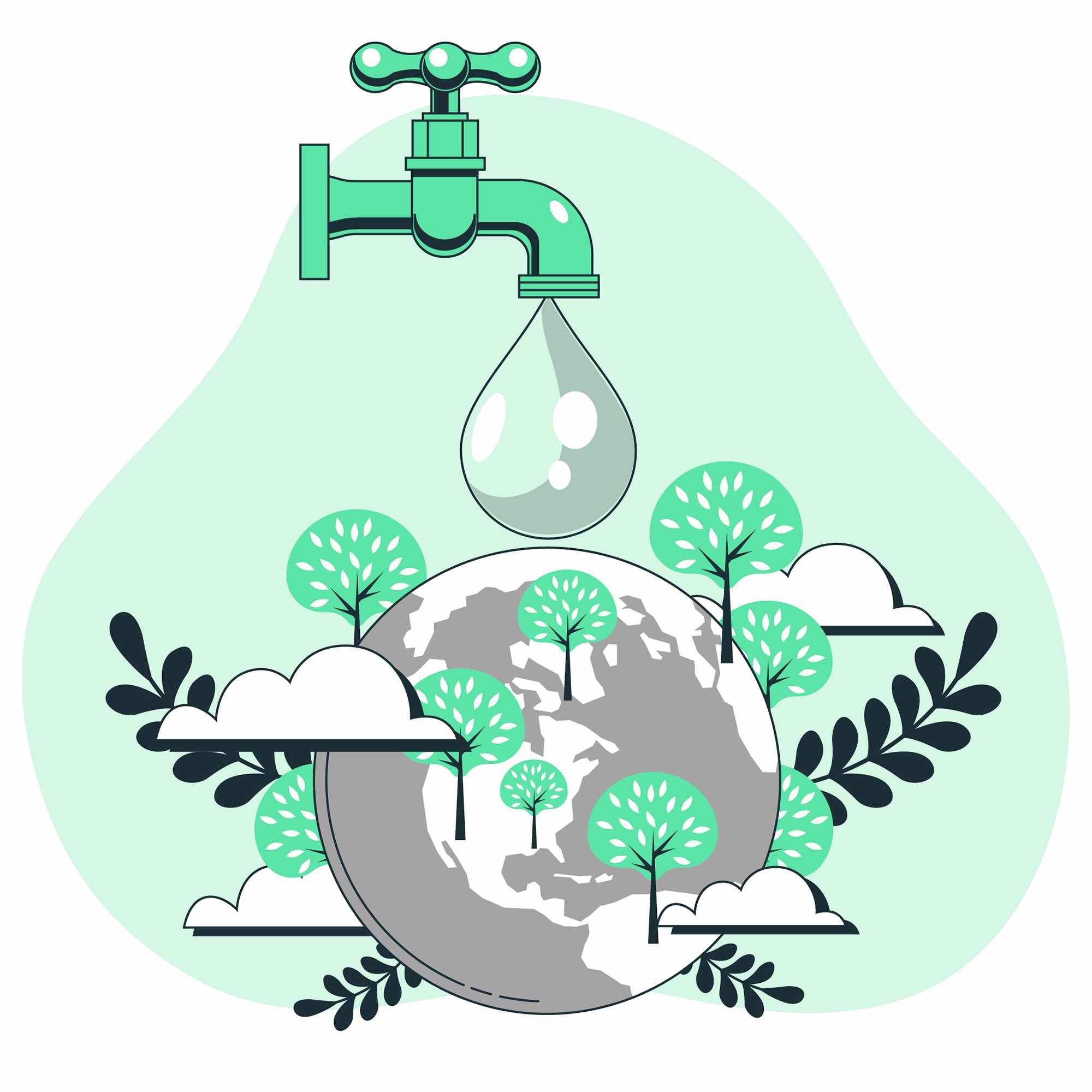
Water scarcity is a growing global concern, driven by factors such as climate change, population growth, and industrial expansion. With freshwater resources depleting at an alarming rate, industries and municipalities must adopt sustainable water management practices. One of the most effective solutions to combat water scarcity is the implementation of water reuse and recycling systems. These systems help conserve water, reduce environmental impact, and ensure a stable water supply for future generations.
Understanding Water Reuse and Recycling Systems
Water reuse and recycling systems involve the collection, treatment, and repurposing of wastewater for various applications. These systems reduce dependency on freshwater sources by reintroducing treated water into industrial, agricultural, and municipal processes. Water reuse can be classified into two main types:
-
Direct Reuse: Treated wastewater is immediately repurposed without being released into the environment.
-
Indirect Reuse: Treated wastewater is discharged into natural water bodies and later extracted for further use.
By integrating these systems, industries and communities can significantly reduce water wastage and promote sustainable water usage.
How Water Reuse and Recycling Systems Help Mitigate Water Scarcity
1. Conservation of Freshwater Resources
One of the most significant benefits of water reuse systems is the reduction in freshwater consumption. By recycling wastewater, industries, municipalities, and agricultural sectors can decrease their reliance on natural water sources, helping to preserve precious freshwater reserves.
2. Reduction in Environmental Pollution
Wastewater discharge from industries and urban areas often contains pollutants that harm aquatic ecosystems. Recycling and treating this wastewater before reuse minimizes contamination, protecting rivers, lakes, and oceans from degradation. This not only preserves biodiversity but also enhances the overall quality of available water sources.
3. Cost Savings for Industries and Municipalities
Implementing water recycling systems can lead to significant cost reductions. By treating and reusing water on-site, businesses can reduce expenses associated with water procurement, treatment, and discharge. Additionally, companies that invest in water reuse technologies can benefit from government incentives and regulatory compliance, further enhancing their financial sustainability.
4. Enhanced Water Security
Regions experiencing frequent droughts and water shortages can benefit immensely from water reuse systems. By developing a self-sustaining water supply, communities and industries can become more resilient to climate change and unpredictable water availability. This ensures continuous water access even during times of crisis.
5. Supporting Industrial Sustainability Goals
Many industries are adopting sustainable practices to reduce their environmental footprint. Water reuse and recycling align with global sustainability efforts, helping companies achieve environmental, social, and governance (ESG) goals. Sustainable water management enhances a company’s reputation and contributes to corporate social responsibility (CSR) initiatives.
Applications of Water Reuse and Recycling Systems
1. Industrial Sector
Industries such as manufacturing, pharmaceuticals, textiles, and food processing require large volumes of water for their operations. Water recycling systems help these industries optimize water use, reduce wastewater discharge, and comply with environmental regulations.
2. Agriculture and Irrigation
Agriculture accounts for nearly 70% of global freshwater consumption. By using treated wastewater for irrigation, farmers can reduce their reliance on freshwater supplies and improve crop yield while minimizing the risk of water shortages.
3. Municipal Water Supply
Cities and towns can implement wastewater recycling for non-potable purposes, such as street cleaning, landscaping, and toilet flushing. Advanced treatment technologies can even make recycled water safe for potable use, as seen in cities with high water stress.
4. Power Plants and Energy Sector
Thermal power plants and other energy facilities require significant amounts of water for cooling. Recycling wastewater in these operations reduces the strain on freshwater sources and enhances efficiency.
Challenges and Considerations
Despite the benefits, implementing water reuse and recycling systems comes with challenges:
-
High Initial Investment: Setting up advanced treatment facilities requires significant capital investment.
-
Public Perception: Many people hesitate to accept recycled water due to concerns about safety and quality.
-
Regulatory Compliance: Industries must adhere to strict water treatment and reuse regulations, which vary by region.
-
Technological Limitations: Some treatment processes may not remove all contaminants, necessitating further advancements in filtration and purification.
The Future of Water Reuse and Recycling
With the increasing threat of water scarcity, the adoption of water reuse and recycling systems will become a necessity rather than an option. Innovations in membrane filtration, reverse osmosis, and advanced oxidation processes will enhance the efficiency of water treatment technologies. Governments, industries, and communities must collaborate to promote water recycling as a sustainable solution.
Conclusion
Water reuse and recycling systems play a crucial role in mitigating water scarcity by conserving freshwater, reducing pollution, and ensuring long-term water security. As industries and municipalities face growing water challenges, adopting sustainable water management practices is essential. By investing in advanced water reuse technologies, we can move toward a more resilient and water-secure future. R3 Sustainability is committed to providing cutting-edge water treatment solutions that drive sustainability and efficiency across industries. Contact us today to learn how we can help you implement effective water reuse and recycling systems.